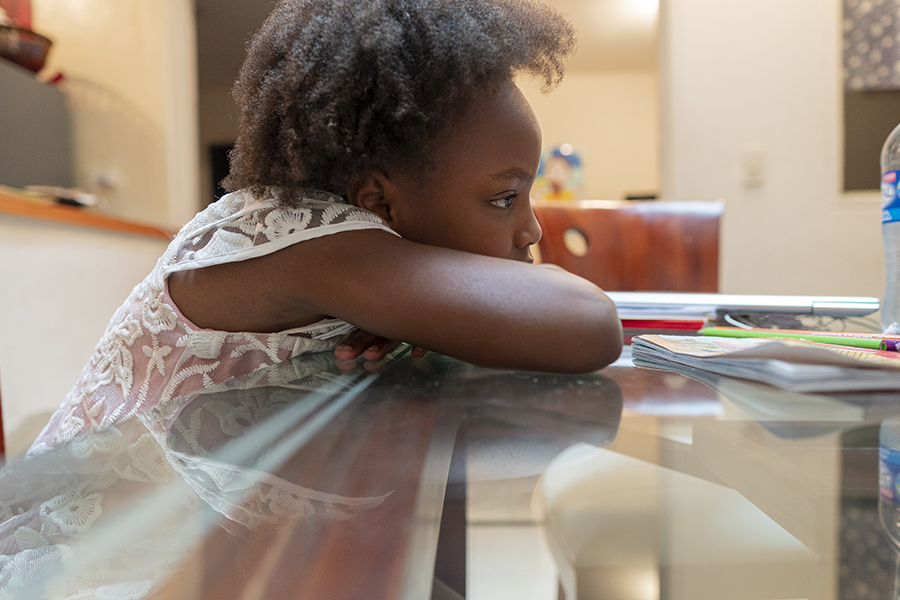Anxiety can be a debilitating emotional experience. It has the ability to take a pleasant moment and turn it into a disaster with all of the “what if’s” that could happen. Anxiety lies and it creates a sense of danger or incredible discomfort in daily life that is exhausting and can be debilitating and limiting.
How can we support our anxious children at school and at home? If your child is struggling with anxiety that is impacting his ability to attend school, achieve to his abilities, and/or follow through and engage in daily academic tasks, I suggest the following:
- Set up a meeting with your child’s teacher and share your observations as a parent and ask questions about your child’s social, emotional and academic skills in relation to her peers.
- Where are your child’s strengths? (e.g., spelling, math, writing, reading, math)
- What are your child’s weaknesses? (academically and in following daily routines)
- Does she need supports such as extended time or repetition of lessons individually or in a small group?
- How does your child manage and follow through on multi-step instructions?
- Is your child able to complete a multi-step task or one that requires sustained attention (i.e., greater than 5, 10, 15 mins)?
- Is your child showing signs of anxiety such as visiting the school nurse or counselor often?
- How easily does your child transition into, through and out of the school day?
Your child may be showing signs of anxiety at home, such as:
- Difficulty getting ready for school in the morning
- Agitation or meltdowns transitioning from school to home
- Difficulty starting and completing homework
- Arguing with siblings or parents consistently
- Difficulty transitioning from home to an extracurricular activity
- Craving down time or decompression time using an IPAD, computer or television
- Agitation or becoming energetic or weepy near bedtime
- Difficulty falling asleep or maintaining sleep
Our children may not be aware that they are feeling anxious but may manifest their anxiety in the ways listed above instead. Look and listen carefully. For example, is your child resisting going to school on the day of the math test or on days she has physical education class?
Accommodations for your anxious child
Your child may need accommodations in the classroom and at home to help manage anxiety. Below are some ideas.
1. At home
Our children, teens and young adults with anxiety work very hard all day to “keep it together” and by the end of the day, they are “spent” emotionally and physically. When they arrive at home after school, they are ready for some serious decompression time (aka down time).
Create a Quiet Zone
For many children, they actually need a space where they can release the “noise” in their heads and bodies after school. For many parents, I suggest creating a quiet corner or a tent where your child can hide and relax. This space can contain any or all of the following:
- a bean bag
- sensory fidgets, such as water beads, rice, beans, etc
- coloring in a coloring book
- drawing
- painting
- Legos
- stuffed animals
- Weighted blanket
Journal
Alongside your child, designate a journal where you can write down your child’s 3 top worries of the day, and end with 3 wins (no matter how big or small) of the day. Journaling makes your child’s worries tangible through spoken words and on paper. They can be referenced over time by you and your child to see where gains have been made or not made.
See Saw
When your child is “high” emotionally, which is often manifested as yelling, hitting, etc, see saw with your child’s intensity by speaking quietly and slowly, or not speaking at all. Many of us as parents seem to match our child’s affect which serves to further escalate the situation. Your child is emotionally dysregulated and needs you to ground her, not match her.
Avoid yelling, punishing, taking things away and becoming emotionally dysregulated yourself. Instead, rub your child’s back, give him a hug, dim the lights, or sit next to your child in silence. When your child is able to receive your words, ask him, “What can I do to help you right now?” or “What do you think you need right now?”
This experience teaches your child that she can lose control and regain it without being punished or yelled at. It shows your child that emotions can be intense but they won’t last forever. It teaches your child that you are a safe person who will support him in calming down, regaining control and problem solving together without judgment.
When your child recovers from the meltdown, and he will, praise your child for recognizing that he had a hard time, worked through it, and was able to figure out a difficult situation.
2. At School
School can be an anxiety provoking place for a nervous child. There are demands and routines to follow during specific time limits, the possibility of being called on to read or answer a question, the demand to hand in homework and produce work during what can feel like short periods of time. Lessons and instructions are provided all day long and there is the demand to follow through.
Here are a few accommodations that you can request from your teacher for your child in school:
- Avoid calling on the child; allow him to volunteer.
- Allow the child to visit the school nurse or counselor on an as-needed basis.
- Coordinate a set date and time for the child for counseling.
- If you are suspecting a learning disability, speak with your child’s teacher and reach out to the Child Study Team.
- Allow for movement breaks, such as Go Noodle.
- Assign a job to the child that gives her a chance to leave her seat and move around while also building self-esteem.
- Provide fidgets for the child (e.g., squishies, monkey noodles, pop its, etc).
- Develop verbal and non-verbal signals between child and teacher for when the child is overwhelmed and needs a break in a quiet corner of the classroom or in the nurse’s office or Guidance Counselor’s office
Anxiety can be overwhelming and exhausting for our children. If your child is anxious and it is impacting her ability to function, consider requesting accommodations for your child at school and creating supports within your home environment.














